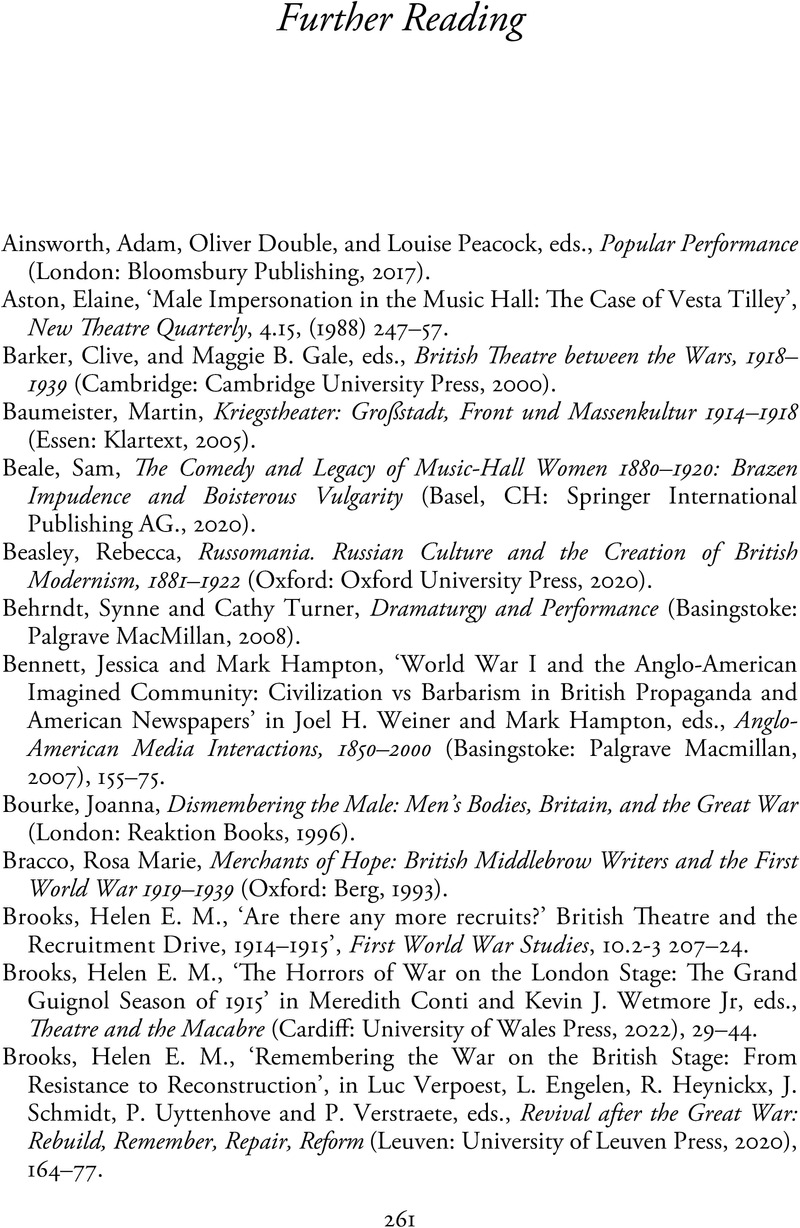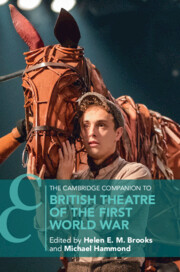Book contents
- The Cambridge Companion to British Theatre of the First World War
- Cambridge Companions to Theatre and Performance
- The Cambridge Companion to British Theatre of the First World War
- Copyright page
- Contents
- Figures
- Notes on Contributors
- Chronology of Events and Productions
- Introduction
- Part I Mobilising for War
- Part II Theatre during the War
- Part III The Memory of War
- Further Reading
- Index
- References
Further Reading
Published online by Cambridge University Press: 19 October 2023
- The Cambridge Companion to British Theatre of the First World War
- Cambridge Companions to Theatre and Performance
- The Cambridge Companion to British Theatre of the First World War
- Copyright page
- Contents
- Figures
- Notes on Contributors
- Chronology of Events and Productions
- Introduction
- Part I Mobilising for War
- Part II Theatre during the War
- Part III The Memory of War
- Further Reading
- Index
- References
Summary

- Type
- Chapter
- Information
- Publisher: Cambridge University PressPrint publication year: 2023



